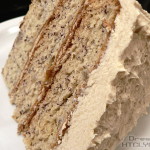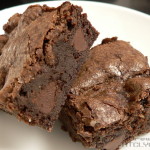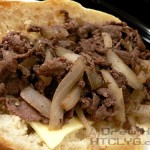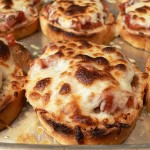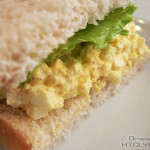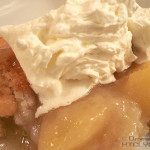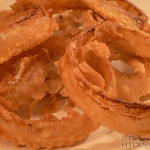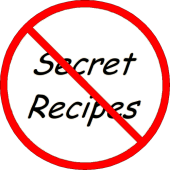Nina Planck is the author of one of the most popular books in the “real food” movement: Real Food: What to Eat and Why. When she got pregnant she decided to look into what the pediatric and medical community had to say about eating for pregnancy, and how to feed a newborn.
If you’ve read any of her stuff before, you won’t be surprised to find out she wasn’t impressed by what she found. She dove back into research mode, and shares what she found in Real Food for Mother and Baby: The Fertility Diet, Eating for Two, and Baby’s First Foods.
Informed, and practical
What I love about Nina’s writing is that she first decides what would be the best thing to do, then tempers it with a healthy dose of practicality. Take her stance on local vegetables, for instance.
Good as local, seasonal, and ecological vegetables are, it’s more important for your family to eat plenty of fresh fruits and vegetables every day. Lots of studies show that people who eat more fruit and vegetables are healthier than those who don’t. I’d bet my last carrot that these studies weren’t conducted with local, seasonal, and ecological peas. In deepest winder, when local produce is scarce and expensive here in New York City, I go directly to the supermarket or local greengrocer, head held high, to buy greens. I have no idea what the carbon footprint of this choice is. But I know the price and convenience calculation without thinking.
The wealth of information she presents is impressive. You could easily spend a year following up on all the sources she cites. But it’s always with a view toward, “What can I do with this inf0rmation?” Every bit of science is backed up with practical advice for how to apply it to your life.
Don’t sweat the small stuff … or most of the big stuff
Nina isn’t afraid to get personal here. She talks about her visits with her doctor, her emotional ups-and-downs as she had good days and bad, and the epiphany she had at a meeting about environmental contamination. It’s easy, as a first-time mother-to-be, to obsess about all the ways you could be harming your growing baby: mercury, smog, pesticides, coal plants … and nothing you can do about them.
Her advice: Do your research before you get pregnant. Once you’re carrying, it’s too late to radically change your health. You’re going to have the baby with the body you’ve already got, so there’s no point in adding stress to the mix.
This advice applies after the birth too, when you start breast-feeding.
There is a stupendous quantity of information about breast-feeding in all sorts of places: books, Web sites, videos, pamphlets. Most of it is impressively thorough and professional. It’s science-based. It’s well written. And it’s much, much more than you need to know.
Lots of bad advice out there
When it comes to feeding your child, Nina is not happy with the state of the current “conventional wisdom”. Newborns don’t yet manufacture the enzymes needed to digest cereal, but that’s usually the first food offered. Before baby food was a patented, multi-million dollar business, mothers knew that the best food for infants was meat and dairy.
Small pieces of cheese, olive oil, gently cooked meat, this is what used to be considered baby food. Wait, scratch that. There was no such thing as “baby food”. There was just food … prepared in a way that the baby can eat it. This doesn’t mean start giving your 1-month-old steak and potatoes. What it does mean is don’t buy any food for your baby that you wouldn’t eat yourself.
If you are frustrated by a finicky baby, try eating a jar of prepared baby food. You wouldn’t want to eat it either.
Eat good food, and feed it to your child
That’s the message that keeps coming through over and over again.
- The best diet for pregnancy is the same as the best diet for a healthy woman who isn’t pregnant.
- After decades of corporations and academics trying to create the perfect baby food in a laboratory it turns out breast milk, plus real food — the same kind adults eat — is still the best.
It’s not about additives and restrictions and man-made creations. Do the research, if you’re the kind of person who needs to reassure yourself. Real Food for Mother and Baby will give you all the pointers you need. Then once you’ve done the research, relax and enjoy your pregnancy. As Nina says:
As a nutrition geek, I have a basic understanding of the major nutrients and a few minor ones, but I am still firmly in favor of the tangible material formerly known as food.
Giveaway
If you’d like my review copy, leave a comment below. Thursday, April 22 at 11 p.m. Eastern time I’ll randomly select someone to send it to. Make sure you leave your email address so I can contact you if you win. And please let any mothers-to-be who you know to come leave a message, too. I want this to go to someone who still has time to use it.

